Articles & Resources
License to Sell!
The Art of Turning a Conversation into a Listing!
Over the years, I’ve taught importance of knowing when to switch from a “sales mentality” to a “marketing mentality.” A sales mindset is basically closing prospects who are ready to sell now, while a marketing mindset is all about setting up a system where you brand yourself and work that brand to create a steady flow of business coming your way. A marketing mindset puts you in the minds of consumers long BEFORE they need to sell.
Marketing & Prospecting
I’ve spent many years working with Greg Herder and his agency in Southern California to build a brand and create optimum name recognition. Many years ago, I went through that “sweat equity” phase of building the branding and marketing, just like many other agents have to. Over time, I was able to leverage my brand into a lead generating system. I have quite a budget for my marketing and advertising efforts. One thing is that even though I have this big machine working for me bringing in leads, I am still hungry and look for every opportunity to prospect. I am not afraid to make 100 calls a day. In a recent week, I had 15 listing appointments on my calendar for Monday and Tuesday!
A Superstar at Both
One of the keys to my success, in my opinion, is that I strive to be both a consummate marketer and a consummate salesperson. I think it’s a powerful combination. For example, I have no qualms making 100 calls a day. Another example is my ability to turn ordinary daily encounters with people into a sales pitch. Here is an example: I have a life and business philosophy built around the Japanese mindset of “Kaizen.” That is the philosophy of “constant improvement” through constant learning. I actually got a personalized license plate with this word on it. People constantly see my plates and then ask me “what does that mean?” I quickly explain the philosophy, then I turn the conversation into properties and real estate, and on several occasions, I have been able to get listings from those conversations.
Conversation=Listing
For instance, the other day I was filling my car at a gas station. A man approached me and asked about my license plate. I explained the philosophy and told the man that it’s an important part of how I approach my daily life. I also explained that the philosophy is exactly how I, and my business team, approach our work. The man “bit the bait” and asked me what I did for a living. That’s how I turned the conversation around to real estate. It turned out that the man was getting ready to sell his home and I got the listing — from a casual conversation!
In fact, that is one of the top ways to do this, ask the person you are talking with what they do for a living. It opens the door to introduce yourself as a Realtor®. The other way to do this is to find a comfortable way to find out where they live, then you have multiple ways to bring the conversation around (“I just took a listing there”; “the housing market there is doing well”; “one of my favorite developments to take buyers to.” etc.).
The point of this article is that it is important to be dialed into a sales mentality, but also cultivate a marketing mentality to grow your business and take control of your time. It helps you get off the “hamster wheel” of chasing deals and looking for the next hot prospect. However, even though you have established a successful marketing campaign and system that is generating leads, you should never stop your daily prospecting, always be ready for the face to face encounter that can be turned into potential business. As you go about your day to day routine, look for ways to engage with people and if the conversation lends itself to it, move it to a discussion of real estate. Don’t force it. It takes practice. You may want to explore several scenarios you might encounter, and craft some ideas how to turn the conversation gently and naturally. Good luck and happy marketing and prospecting!
______________________________________
The 3 Most Frequently Asked Questions About Coaching
What is it? Why should I do it? What’s it cost?
As a real estate coach, I’m constantly approached by people with many different questions about what coaching involves. Sometimes they’re skeptical. Other times they’re excited and inquisitive. But once we get talking, they almost always end up recognizing how coaching can significantly impact a person’s life. In this article, I’m going to address the three most asked questions I receive, and hopefully share a little bit about myself in the process.
Question #1: What is Coaching?
Most people already know this answer before they even ask. I would venture to guess that everyone has had a coach at some juncture in life. Maybe it was your first music instructor, first little league coach or that third grade teacher that helped you win the spelling bee at your local school.
Isn’t it sad that now, all these years later, you ask, “What is coaching”? The reason is that many move on from having a coach when finishing their high school or college education.
If you were to make a list of the people that have helped you in your life either as a coach or mentor, you will find that they helped you when you were trying to achieve something that was out of your comfort zone or lack of training in a certain field or area. Your favorite ones are those on your list that helped you be successful, made you feel better about your accomplishment, gave you the skill to perform or just flat kicked you in the rear when you couldn’t find the energy or motivation.
Coaches Are Important in our Lives
My favorite coach was my college wrestling coach. A little bit of back story: I wrestled in high school and suffered some bad losses. I hated that feeling. So I got a job bagging groceries and saved up to go to wrestling clinics and worked and worked until I really upped my game. I then won 32 consecutive matches! When I went to college, I decided to do a “walk on” for their well-respedted wrestling program. The coach looked at me incredulously when I walked into the middle of his practice and demanded a tryout. When he saw I wasn’t going away, he gave me a chance. Only, he put me against his best wrestler and told me if I could beat him, the spot on the team was mine.
Well, though I held my own, that wrestler beat me pretty sound. But that coach saw something in me and let me be a part of his team. I think he connected with my drive and my chutzpah to walk into his practice. He taught me the skills to the best of his ability. As a student of game, I had so many questions and, as always, my coach would find the answers. As a coach, he gave me drive, determination, dedication and a passion that I carry to this day. I have a passion to succeed in whatever I do. That is the power of a coach.
Coaching gives one a third-party view of what is going on. You can see so many examples with professional athletes. Sometimes, a star quarterback or a hot pitcher or hitter to into a slump. When you are performing at the level these professionals are playing at, it becomes a big mind game. They start over thinking and get into a slump. Then, if they don’t correct it, they lose their confidence, then it can potentially derail a promising career. When they take a step back and bring in a hitting coach, a quarterback coach and the help them analyze their “mechanics”, often it helps the star player get back to their peak performance.
Question #2: What are the benefits of Coaching?
Coaching provides direction. Simply knowing that something is not working is not sufficient. You need answers. A coach is there to help you explore every avenue to find the answer. Whether it is honing your skill or directing you to the proper use of your marketing system, a coach gives you the direction to get where you want to go.
A coach helps organize your business plan. The coach has the benefit of working with agents all around the United States and Canada. Obviously, this expansive knowledge base most benefits the agent. Why would you need to practice a plan for 10 years that has proven to be ineffective with so many other agents? Save yourself the time and money and get a proven plan together with your coach.
Another great benefit is that coaching keeps you on track. You are exactly right; you must stay on track and that is your responsibility. However, keeping the emotions and excuses out of your way is nearly impossible. A coach is far removed from the emotions and has already heard every excuse imaginable which will allow you to move far beyond your own limitations.
Question #3: What does it cost?
What a great question. My coaching program is not for every agent. If you are not prepared to commit the time and resources, then you won’t succeed — with any coach. The deeper question is how much is your time worth? What is your career path and getting your trajectory heading in a more robust flow? What does it cost to spend days trying to sort out a plan and only then decide it won’t work and you’re going to try another way? It is very expensive to put a non-detailed business plan into action. What does it cost not to have a dynamic database that increases you bottom line? Figure out the above questions on a yearly dollar basis and you will see what coaching really costs. The price is enormous for not having a coach.
If you are interested in my coaching program, the first step is to click here to schedule a phone consultation to see if it’s right for you.
___________________________________________________________





